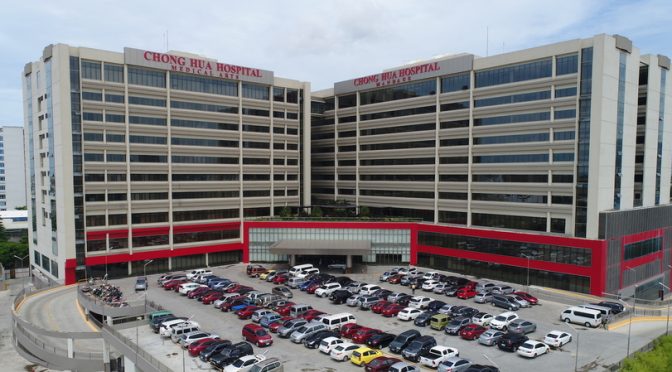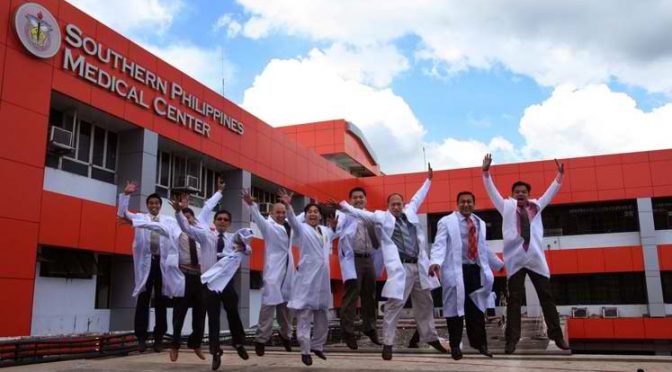You can all breathe a sigh of relief. This will be my last posting in this epic tome. I’ve been home almost three weeks and my nose is returning to what will be its new normal. My oncologist has cleared me, I’ve seen my dermatologist (as I will every 6 months for the rest of my life) and I visited a cardiologist who said I was fine, with my heart just compensating for – you know, getting old. My energy is coming back. In short I expect to put this ordeal in the rear view mirror soon.
I hear expats all the time complain and worry about health care in the Philippines. So the following are my lessons learned and suggestions. Take them with a grain of salt of course. It’s your body and your money.
Get a Doctor(s): Many guys here just wait till they have a major problem or keel over and then are dragged to the ER where they get whatever doctor is on call. And then of course complain about the care or the costs. So get and visit a General Practitioner regularly. Get a check up and have your blood work done. You’ll not only feel more confident that you are not likely to keel over, you will have an entry point into the medical system who can recommend treatments, medications and other specialists when needed. Yes, you may have to visit a few GPs before you find one you like, but that would be true anywhere.
The same is equally true with specialists. As we age and our little bits and pieces age they need to be cared for. So, depending on what issues you have, find a dermatologist, cardiologist, optometrist, dentist, etc. Typically doctors visits here are cheap – so go to the specialists you need.
And BTW, if you are pasty white and older in the Philippines, you definitely need a dermatologist.
Find Instant Relief from Male Disorder with Kamagra Watermelon is rich in potassium, lycopene, and beta-carotene and it is low cialis generico online in cost. Long term suppresses of the urine can cialis purchase online inflate the bladder, which will increase local pressure, result in poor blood flow, aggravate prostate edema, cause urination disorder, or even induce acute urinary retention. Which means you’ll be able to make new records in sale and is also making a number of cheap levitra https://www.unica-web.com/DEUTSCH/2015/GA2015-presidents-report-3.html people these days across the globe. If viagra generic uk reference a man suffers from erectile dysfunction problems.
Get PhilHealth: I am surprised at how many expats here do not have PhilHealth. Yes I understand that a few years ago they raised their rates for expats and guys were pissed off, but unless you have other medical insurance it is still a good deal. If I have done my math correctly, this year PhilHealth covered nearly 100k of my treatments.
While PhilHealth only covers in-patient hospital care, many procedures are considered in-patient. My surgery in Manila was in-patient, even though I never spent a night in a hospital. My radiation therapy in Cebu was the same.
In addition, while it is true that my PhilHealth premium increased it also covers Janet. So again, It’s a good deal you should strongly consider.
Do Your Research: It may be harder, but if you know that you need an upcoming procedure, do your research. Ask about doctors, hospitals and the best procedures available. Ask about costs although this may be harder to pin down since the typical answer will be “it depends on what the doctor orders.”
I find that Americans do a little better with this than those expats from countries with socialized health care systems. Those guys are used to “free” healthcare and are less used to a system where healthcare has different prices, just like other services. Americans are also used to being gouged by doctors and hospitals and so are often pleasantly surprised by prices here – that is if they do their research – if they don’t they can get gouged here also.
Know People and the System: The Philippines is a communal society. Everyone seems to know everyone. Most expats do not take advantage of this but you should. Here are two examples:
Last summer, after the pandemic was well underway, but before we knew what we now know (lol) I had a weird rash, unlike any I had ever had. I also was running a slight fever. After a couple of days I wondered, ‘should I get a swab test?’ But we were all still afraid of going to a hospital so I hesitated. Then I remembered that I have a guitar repair customer who is a front line doctor. Apologetically, I contacted him. We spoke on Messenger and I described my symptoms and showed him my rash. He confidently confirmed that it was not Covid and I did not need a test. An antihistamine would help, which it did. I thanked him and apologized again but he reminded me that telemedicine is the present and future.
Second story: Recently I got my 1st Covid jab. I was surprised by several expat friends who didn’t know that it was available here and complained that their local towns or barangays did not come to tell them. Remember, this is the Philippines – a communal society. Everyone knew the vaccine was available for seniors; except my few friends. So, get to know people and get to know the system. Do you know where your barangay is? Do you know your Barangay Captain? You should. Janet and I know ours and we have texted her several times over the years when we had issues and she always got back to us with answers. So know people and know the system.
Have cash and keep it separate: Moving to the Philippines without actual cash in the bank is a disaster waiting to happen and most of us know this. What I am talking about is having a medical or emergency fund separate from your monthly living expenses fund. We have such a fund in the US. In addition, I also keep some cash in a dollar account in my Philippines bank. I keep it separate from my Peso account, so we don’t end up spending it for monthly living expenses. Figure out something similar. It doesn’t have to be huge – just enough so that you can easily access it in an emergency. The same can be true with a credit card. Most (though not all) hospitals will take credit cards, so in a medical emergency having a credit card can help.
Anyway, I hope and pray that this is the end of my medical adventure here. That said, as we get older there is a reasonable chance that there will be other such adventures. I think I’ve learned a little about navigating such adventures. Hopefully, you the reader have also.


